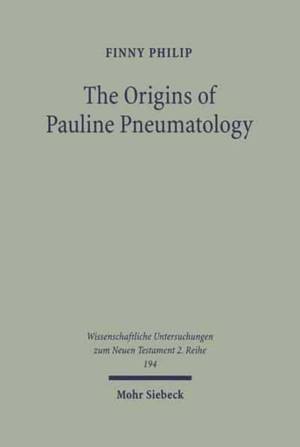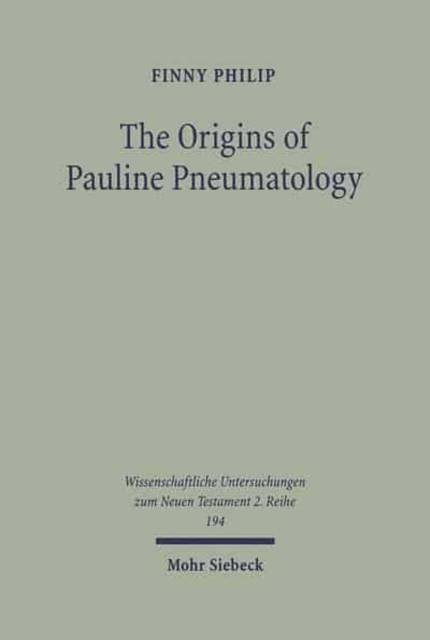
- Retrait gratuit dans votre magasin Club
- 7.000.000 titres dans notre catalogue
- Payer en toute sécurité
- Toujours un magasin près de chez vous
- Retrait gratuit dans votre magasin Club
- 7.000.0000 titres dans notre catalogue
- Payer en toute sécurité
- Toujours un magasin près de chez vous
The Origins of Pauline Pneumatology
The Eschatological Bestowal of the Spirit Upon Gentiles in Judaism and in the Early Development of Paul's Theology
Finny Philip
77,95 €
+ 155 points
Description
Finny Philip inquires into Paul's initial thoughts on the Holy Spirit. Paul's conviction that he was called to be an apostle to the Gentiles and that God bestowed the Spirit upon the Gentiles apart from Torah obedience is the basis for any inquiry on this subject. Central to Philip's argument is Paul's conviction that God graciously endowed his Gentile converts with the gift of the Spirit, an understanding that is rooted primarily in his conversion experience and secondarily in his experience with and as a missionary of the Hellenistic community in Antioch. In examining the range of expectations of the Spirit that were present in both Hebrew scripture and in the wider Jewish literature, the author comes to the conclusion that such a concept is rare, and that it is usually the covenant community to which the promise of the Spirit is given. Furthermore, Paul's own pre-Christian convictions about the Spirit, a result of his own self-perception as a Pharisee and persecutor of the church, display continuity between his thought patterns and those of Second Temple Judaism. Paul's Damascus experience was an experience of the Spirit. His experience of the glory of God in the face of Jesus Christ (2 Cor. 3:1-4:6) provided him with the belief that there was now a new relationship with God, which was possible through the sphere of the Spirit. In addition, Paul was influenced by the Hellenists, whose theological beliefs included the perception of the church as the eschatological temple in which the Spirit of God is the manifest presence of God. It is in these notions that one may trace the origins of Paul's thoughts on the Holy Spirit.
Spécifications
Parties prenantes
- Auteur(s) :
- Editeur:
Contenu
- Nombre de pages :
- 307
- Langue:
- Anglais
- Collection :
- Tome:
- n° 194
Caractéristiques
- EAN:
- 9783161485985
- Date de parution :
- 01-07-05
- Format:
- Livre broché
- Format numérique:
- Trade paperback (VS)
- Dimensions :
- 155 mm x 233 mm
- Poids :
- 480 g

Les avis
Nous publions uniquement les avis qui respectent les conditions requises. Consultez nos conditions pour les avis.






